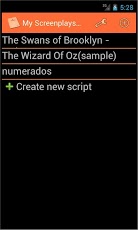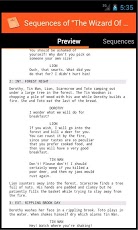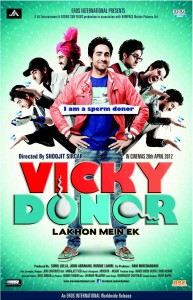
I have a friend who is a mechanical engineering graduate. Now he is planning to move to Mumbai to become a scriptwriter. Naturally, when the countdown has begun for the shift, the self doubt is creeping in. On one of such moments, he asked me- How do you know you have the talent to become a screenplay writer or for that matter, any kind of creative writing?
The truth is, you never know until have made your first sale or your first film. And often, your script getting produced is not an enough validation of your actual writing talent. Especially in our film industry. But still the question caught me. We make drastic and risky career choices based on the conviction that we can write. We spend a lion share of our spare time writing, shutting ourselves off from our family and day job. Often a little bit of objective perspective can save us a lot of loss and despair.
So, below are certain points that I could think of, which may help. But the standard disclaimer is, these points could be indicators of talent, but not necessarily that of success. More than that, these are points which should guide some one to understand how important writing is to himself.
The motive talks for itself
Are you into scriptwriting because you believe it is the easiest and least expensive way to break into film industry? Or because you absolutely love writing? Most of the other aspects of film making requires technical expertise. Expertise in screenplay writing can be acquired by sitting at home and writing. If that is why you turned into writing, be careful. Writing is learnable but the progress is much slower than learning to edit or capture a shot. And there are much less objective measures for your improvement (if any).
Have you written anything in the last 3 years?
Writers write. Talking and debating about writing, reading script gurus, analysing the scripts of recent films, writing blogs about scriptwriting- all these don’t amount to writing. Writers have this itch to punch out things- even if they are not on a grand scale. It doesn’t have any logic. But they go on doing it in some form or other. If you have not written anything for a long time, it is much more likely that it is a dispensable habit for you. Then why all this trouble because writer as a career is one of the most volatile, insecure, stress inducing and unpredictable professions.
Is your writing appreciated by strangers?
Friends and family members don’t count. Also if the appreciation comes from a stranger even without your seeking for an opinion from this particular person, it counts more. Someone buying your script is the best and honest form of appreciation. Unless it is your parents.
How much does success matter to you?
Imagine this. Your guardian angel appears in front of you and tell you that if you pursue writing as a career, you are not going to succeed at least for the next 10 years. Now be completely honest with yourself. Would you still continue to write now? If answer is an emphatic ‘no,’ one needs to reevaluate one’s options. Because the truth is, even if you are talented, probably you are going to take that much time. If you can’t the enjoy the process in the mean time, then what’s the need for the suffering?
Can you survive the scissors?
What makes script writing different from so many other forms of writing is that, unless the you are the writer-director-producer kind, your script will go through changes many of which you are not going to like. If you want to be the autocrat hermit, it is better to write a novel where the interference is much less. Producing scripts is about being good in the room, articulating your position and being willing for compromises. It may sound easy. But it is not. Because everyone involved with a film loves to give opinion on the script. But sometimes the writer has to sacrifice the pawns to save the king.
Some indicators of your flexibility are- 1)Does your script undergo drastic changes after first draft, based on feedback? I mean a page 1 re-write with complete restructuring because you liked someone’s advice? 2) Have you got into heated arguments with the person who gave feedback on your script?3) Is your co-writer still in talking terms with you?
Ability to give intelligent feedback is not equal to talent.
Many of us are very good in breaking down and analysing films/screenplays. It doesn’t mean the scripts that we write are going to be good. A good script is not only about getting ‘things right’ and ‘avoiding mistakes.’ It is also about consistently good execution in every page and line. In a good script and film, good writing may appear deceptively easy and simple. Don’t get fooled by thinking that ‘it should not be that difficult to write something better than that film that got released last week.’ Because our judgement about a script is heavily coloured by the quality of the final film.
Do you finish your projects?
Occasionally losing faith in a project is normal. But if the pattern is persistent, say out of the last 5 scripts none were completed, you need to be careful. A possibility is, your ‘shit detector’ is decent enough but your writing is very bad. Sometimes our mind knows even though we don’t want to openly accept it. Also it is possible that you are not able to sustain enthusiasm on a project for long. Writing a tweet and a script are different. There is no instant gratification while developing a script. You have to hammer on without any guarantees or encouragement. Is your temperament suited for such a process?
Photo by It’s a Keeper











